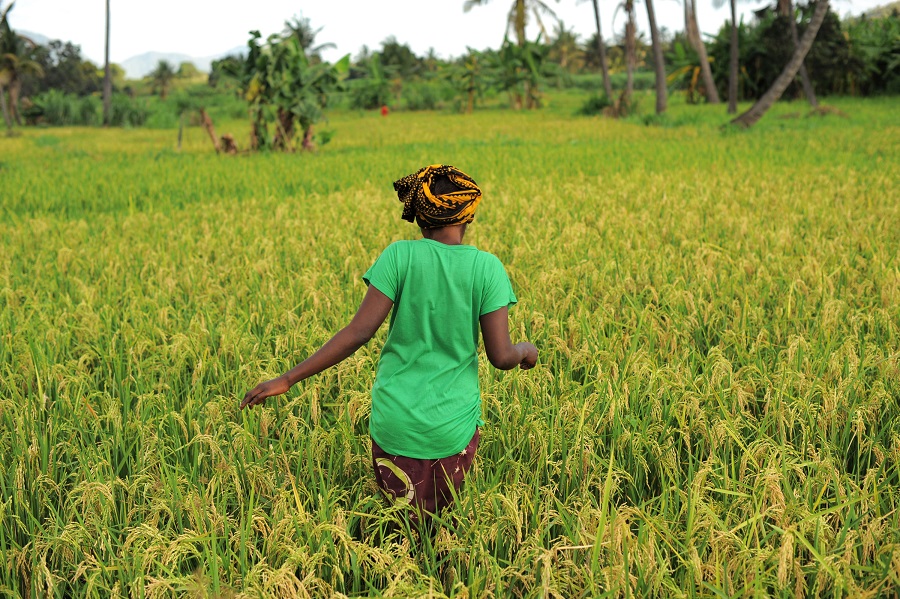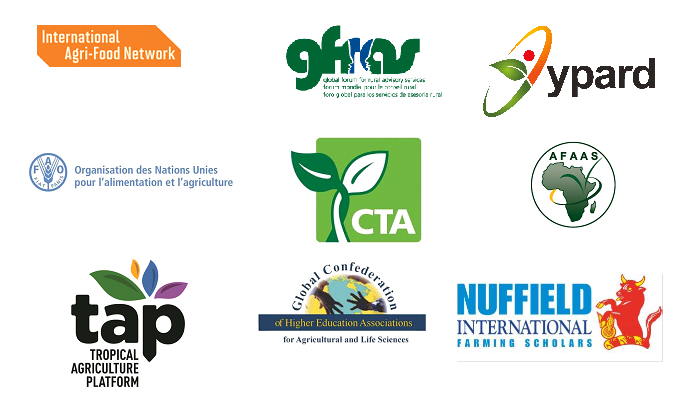-
About
- Our Work
- Get Involved
- Stay Updated

Rationale
Agriculture plays a significant role in achieving global food and nutrition security, increasing economic growth, and attaining environmental sustainability. Representing close to 40% of the global workforce, agriculture is the world’s largest provider of jobs, employing over 1.3 billion people.
The emerging global trends such as globalisation, increasing population, climate change and environmental impacts, technology advancement, new institutional arrangements, and ageing of the agricultural workforce offer both challenges and opportunities for agricultural development and food systems.
The integrated nature of these issues adds another layer of complexity, thus requiring radical change in order to transform agriculture into a more productive, sustainable, competitive, and efficient sector. This scenario demands more updated modern knowledge and skill transfer to develop talent in agriculture.
It means up-skilling and re-tooling of the current agricultural workforce with diverse and more holistic educational programmes. It means retaining people with skills and aptitude required by the current and future sectoral needs.
It means attracting new personnel by going beyond the traditional production agriculture sector, and expanding to a broad range of career opportunities available in the agriculture-food-nutrition-environment nexus and particularly in the use of ICTs. Most importantly, it means creating incentives and campaigns that encourage young people to see agriculture as one of the best options for a career choice.
Growing Ambitions for agricultural professionals
In October 2013 the Committee on World Food Security (CFS) endorsed its Multi-Year Programme of Work for 2015-17, including a Round Table entitled “A Plan of Action to Build Knowledge, Skills, and Talent Development to Further Food and Nutrition Security.” The endorsement by the CFS of this topic signalled talent development in agriculture would take increased precedence in the United Nations food security agenda.
In response to this plan of action, a coalition of interested partners engaged through an iterative process to define strategies for improving the effectiveness and efficiency of talent development systems of the world’s most important industry, agriculture. Several key areas have been identified where there is need for working on progressive goals and innovative partnerships to implement them. We are thus calling for development actors to:
- Create an enabling environment and incentives for private sector engagement in talent development to improve linkages between supply and demand of knowledge and skills;
- Promote demand-driven and innovative agriculture education, training, and skills development programmes geared towards transformation and maintaining high performance culture at all levels;
- Recruit and retain youth and women in agriculture through incentives and the promotion of conducive environments for equitable access to secure land tenure, inputs, financial services, knowledge, and markets;
- Develop national agricultural plans and resource mobilisation strategies to enhance talent development in agriculture, food, and natural resources while including women and youth in the process;
- Develop monitoring, learning, evaluation, and knowledge management systems for talent development

Picture credit: ©FAO/Daniel Hayduk / FAO
About the author
Related Posts
Comments
No comments made yet. Be the first to submit a commentBy accepting you will be accessing a service provided by a third-party external to https://archive.ypard.net/
Get in touch
Email: [email protected]
YPARD Global Coordination UnitHosted by AGRIDEA and the Czech University of Life Sciences Prague
Lausanne, Switzerland and Prague, Czech Republic - Our Work

